

— Products —
 Consumer hotline +8618073152920
Consumer hotline +8618073152920 WhatsApp:+8615367865107
Address:Room 102, District D, Houhu Industrial Park, Yuelu District, Changsha City, Hunan Province, China
All products
Visibility and Present Weather Sensor is a new generation of weather visibility monitoring equipment based on the aerosol front scattering principle. It is suitable for weather stations, remote automatic weather stations, airports, highways, airways, large ships and other transport sectors, providing you with accurate weather visibility data.
Tel/WhatsApp:+8615367865107
Email:Arvin@niubol.com +Nearly 100 partner company in more than 68 countries. We are committed to providing high-quality, practical products to meet your needs and help you solve problems.Product Details
Visibility and Present Weather Sensor is a new generation of meteorological visibility monitoring equipment based on the advanced aerosol front scattering principle. As an innovative upgrade of the traditional transmissive visibility instrument, it is widely used in weather stations, remote automatic weather stations, airports, highways, airways and large ships and other key transport areas, providing high-precision and high-reliability visibility data support for all kinds of environments.
Visibility and Present Weather Sensor is a new generation of weather visibility monitoring equipment based on the aerosol front scattering principle. It is suitable for weather stations, remote automatic weather stations, airports, highways, airways, large ships and other transport sectors, providing you with accurate weather visibility data.
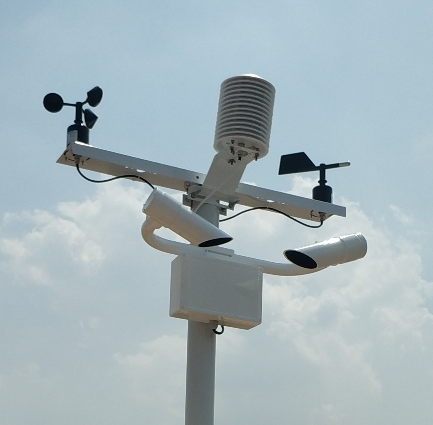
| Supply voltage: | DC12V |
| Signal output: | RS485 |
| Communication protocol: | standard MODBUS protocol |
| Baud rate: | 9600 |
| Technical principle: | light scattering |
| Scattering angle coverage: | 39o-51o front scattering |
| Peak wavelength: | 875nm |
| Bandwidth: | 100nm |
| Measuring range: | 5-10KM |
| Measurement accuracy: | ≤2km, 2%; 2km-10km, ±10%; |
| Working temperature: | -40-80℃ |
| Working humidity: | 0-95%RH |
| Standard cable length: | 10 metres |
| Size: | 610mm x 230mm x 300mm |
Material: | anodized hard aluminium, with paint protection on the outer surface |
| Protection grade | IP65 |
Transmitter: Built-in laser tube, transmits laser signals outward at a fixed angle.
Receiver: Built-in photosensitive receiver device, receiving scattered signals to ensure accurate data.
Microprocessor Control Unit: Built-in microprocessor samples and calculates the current visibility value, and transmits the data in real time via RS-485 interface.
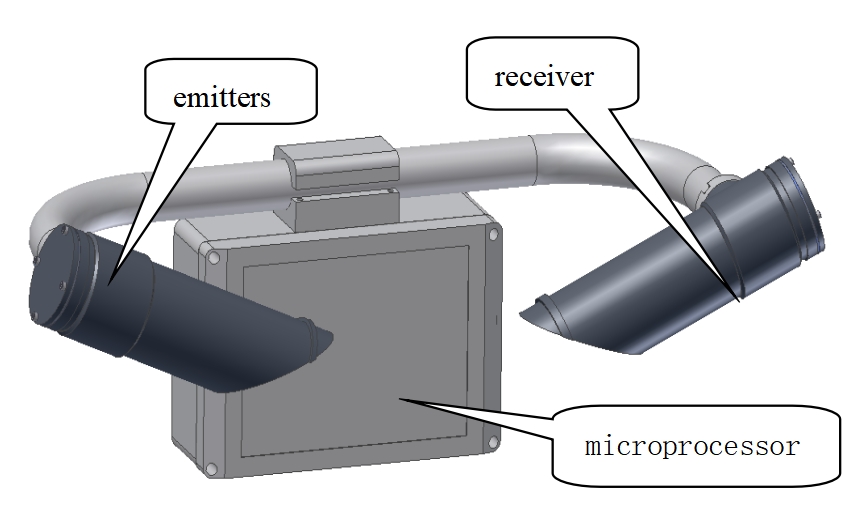
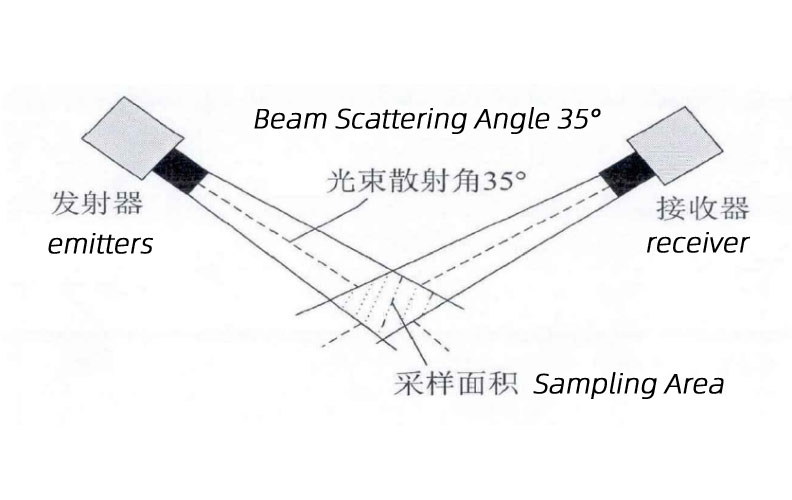
Strong anti-interference: Unique double-scattering receiver structure design, effectively reducing solar and stray light interference.
High protection level: High-quality rigid aluminium and 316 stainless steel, anodized surface passivation treatment, multi-painting protection, to ensure long-term stable operation.
Lightning protection design: communication interface and power interface are equipped with lightning protection design to protect the equipment from lightning damage.
Intelligent and stable: Built-in watchdog circuit ensures stable and reliable long-term operation; the communication interface chip has 15KV anti-static protection to ensure safe operation.
Integrated design: The light transmitter, highly sensitive light receiver and intelligent microprocessor controller are integrated into a single unit, adopting infrared pulsed light technology to accurately capture the forward scattering information of aerosol particles in the atmosphere.
Accurate Measurement: Scattered light intensity is converted to Meteorological Optical Range of View (MOR) by advanced microprocessor algorithms, covering a wide range of meteorological conditions from near to far.
Convenient communication: Supports DC12V power supply and easy data transmission to the monitoring centre via RS485 communication interface, ensuring real-time monitoring and analysis.
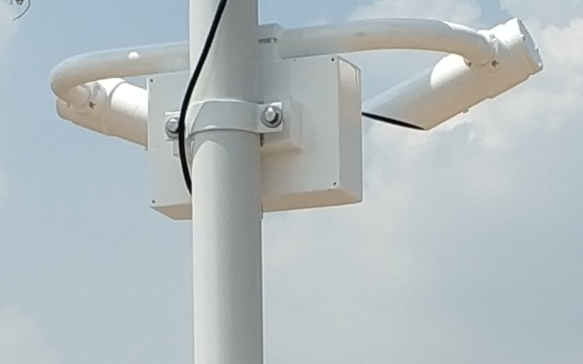
Highly accurate measurement: Infrared pulsed light technology, combined with special mathematical modelling algorithms, accurately calculates the meteorological optical range of view (MOR), ensuring that the measurement accuracy reaches 2% at ≤2km and ±10% at 2km-10km.
Wide adaptability: Operating temperature range of -40℃ to 80℃, humidity 0-95%RH, with IP65 protection level, adapt to a variety of harsh environments, including coastal areas.
Low power consumption design: average power consumption is only 0.8W, support battery or solar panel power supply, easy to use in remote areas or unattended sites, suitable for battery or solar panel power supply.
Convenient Maintenance: Optical lens is specially coated to reduce dust accumulation, cleaning cycle up to 3 months, reducing maintenance costs.
Intelligent communication: support RS485 communication interface, using standard MODBUS protocol, baud rate 9600, to ensure stable and reliable data transmission.
Stable and reliable: Built-in watchdog circuit, stable long-term operation, MTBF greater than 18,000 hours.
Front scattering principle: using less than 90 degrees forward scattered light measurement, focusing on the scattering effect near the central front scattering angle, accurately reflecting the local atmospheric conditions.
Precise sampling area: The intersection of the transmitting and receiving optical paths defines a precise sampling area, ensuring the accuracy and relevance of the data.
Strong adaptability: For fog, smoke, haze, dust storms and precipitation, it provides high-precision visibility assessment within 100km, and molecular scattering effects are taken into account over long distances to ensure the scientific validity of the data.
Meteorological monitoring: weather stations, remote automatic weather stations, providing real-time weather visibility data.
Transportation: airports, highways, airways, large ships, to ensure traffic safety and smooth.
Environmental monitoring: various environmental monitoring stations, monitoring air quality and visibility changes.
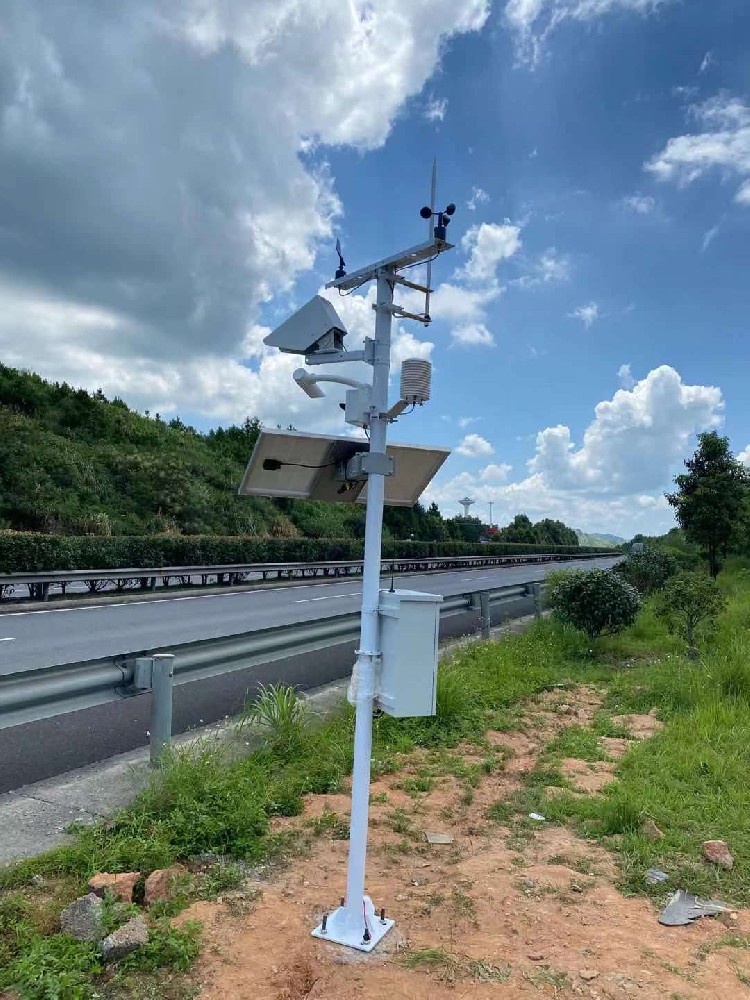
Installation Location: Choose a location that is open, unobstructed and representative of the average meteorological conditions in the monitoring area for installation. Avoid installing near pollution sources to reduce errors.
Power supply connection: Use DC12V power supply for the sensor to ensure stable and reliable power supply.
Communication connection: Use three-wire RS485 communication cable to connect the sensor with the upper computer in the monitoring centre. According to the standard MODBUS protocol configuration communication parameters, such as baud rate.
Built-in commands: Through the display terminal or the host computer software, use multiple sets of built-in commands to configure system parameters and control system functions. This includes setting the measurement range, data sampling frequency, communication protocol, etc.
Software Settings: Configure the corresponding data receiving and processing parameters in the upper computer software of the monitoring centre to ensure that the data sent by the sensors can be received in real time and accurately parsed.
Real-time display: the upper computer software displays the meteorological visibility values and status information in real time, which is convenient for the monitoring personnel to understand the weather conditions in time.
Data Recording: Set the data recording function to save the monitoring data into the database regularly or in real time for subsequent analysis and processing.
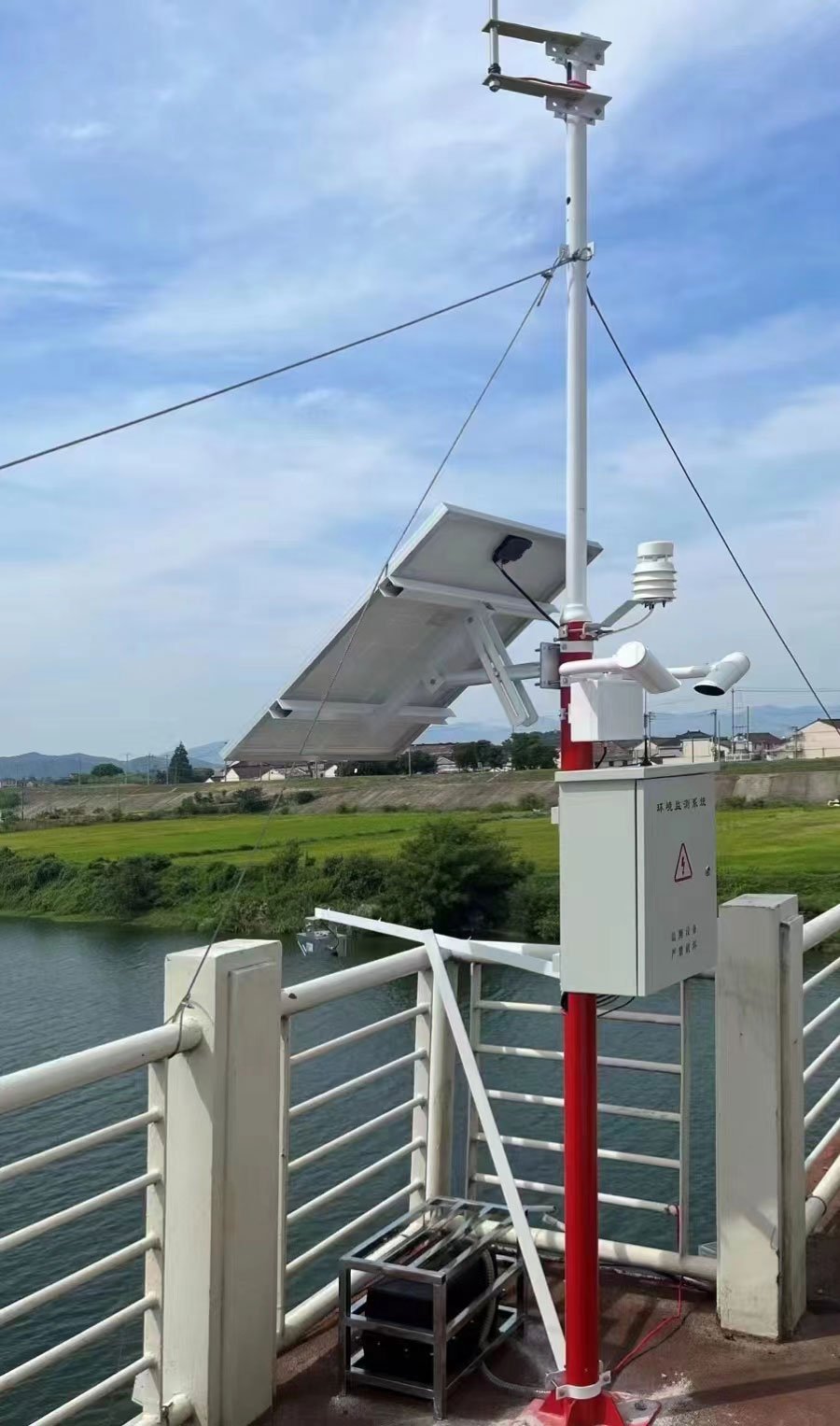
Cautions
1. Environmental adaptability
Temperature and humidity: Ensure that the sensor works within the specified temperature (-40℃ to 80℃) and humidity (0-95%RH) to avoid the influence of extreme environment on the performance of the sensor.
Protection: The sensor has IP65 protection, but still need to pay attention to water and moisture, avoid prolonged immersion in water or exposure to strong corrosive environment.
2. Maintenance and cleaning
Regular cleaning: according to the use of the environment and frequency of use, regular cleaning of the optical lens to prevent dust, salt spray and oil and other pollutants affect the measurement accuracy. It is generally recommended to clean once every 3 months, or adjust the cleaning cycle according to the actual need.
Check calibration: Calibrate the sensor regularly to ensure the accuracy and reliability of the measurement data. The specific calibration method and period can refer to the product manual or consult the manufacturer.
3. Electrical safety
Lightning protection measures: the sensor has a lightning protection design, but in lightning-prone areas still need to pay attention to lightning protection to avoid damage to the equipment caused by lightning strikes.
Anti-static: pay attention to anti-static during wiring and operation to avoid static electricity damage to the circuit.
4. Other Precautions
Avoid interference: During installation and use, avoid the sensor being affected by strong electromagnetic fields, high-frequency signals and other sources of interference.
Backup data: Backup monitoring data regularly to prevent data loss or damage.
Professional operation: It is recommended that the installation, configuration and maintenance work be carried out by professionals to ensure the normal operation of the sensor and the accuracy of the measurement data.
Through the above introduction, you can have a more comprehensive understanding of how to use the Visibility and Present Weather Sensor and precautions. In the process of use, please be sure to follow the product instructions and related specifications to ensure the safe, stable and reliable operation of the sensor.
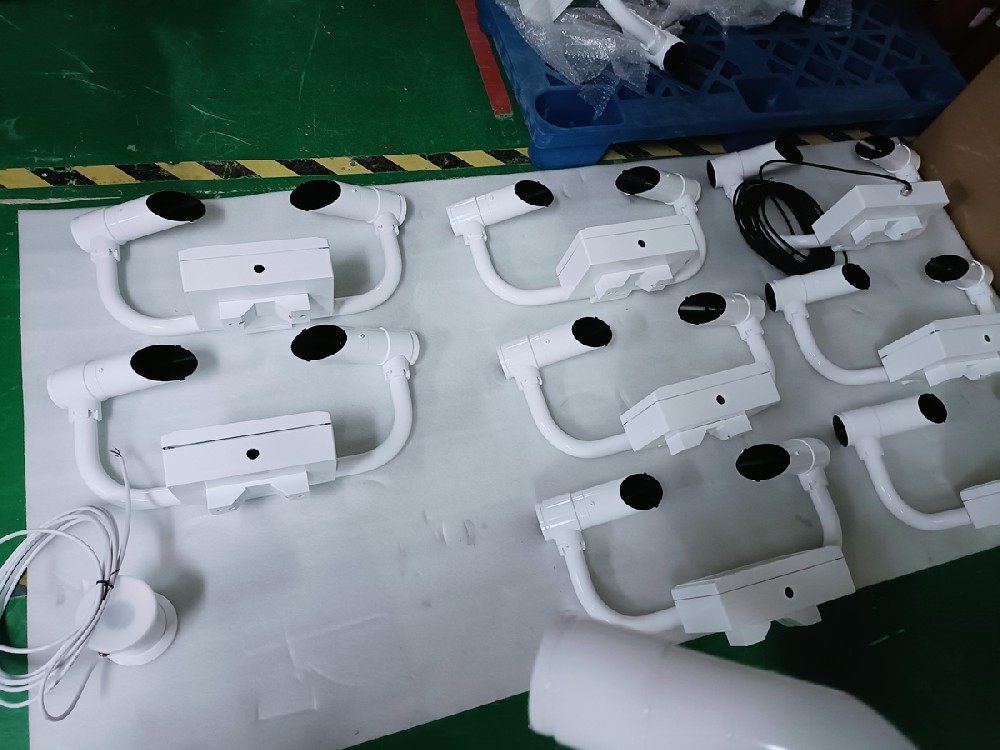
Purchasing Advice:
The Visibility and Present Weather Sensor is ideal for your meteorological visibility monitoring. Its high accuracy, stability and environmental adaptability will bring great convenience to your work. Contact us today for a customised solution.
Sensors & Weather Stations Catalog
Agriculture Sensors and Weather Stations Catalog-NiuBoL.pdf
Weather Stations Catalog-NiuBoL.pdf
Related recommendations
 Multi-Depth Soil Sensor RS485
Multi-Depth Soil Sensor RS485 TDR Soil Moisture Sensor
TDR Soil Moisture Sensor Pyranometer Solar Radiation Sensors
Pyranometer Solar Radiation Sensors Soil ph sensor
Soil ph sensor Tipping Bucket Rain Gauge
Tipping Bucket Rain Gauge Air Temperature and Humidity Sensor
Air Temperature and Humidity Sensor
Screenshot, WhatsApp to identify the QR code
WhatsApp number:+8615367865107
(Click on WhatsApp to copy and add friends)
